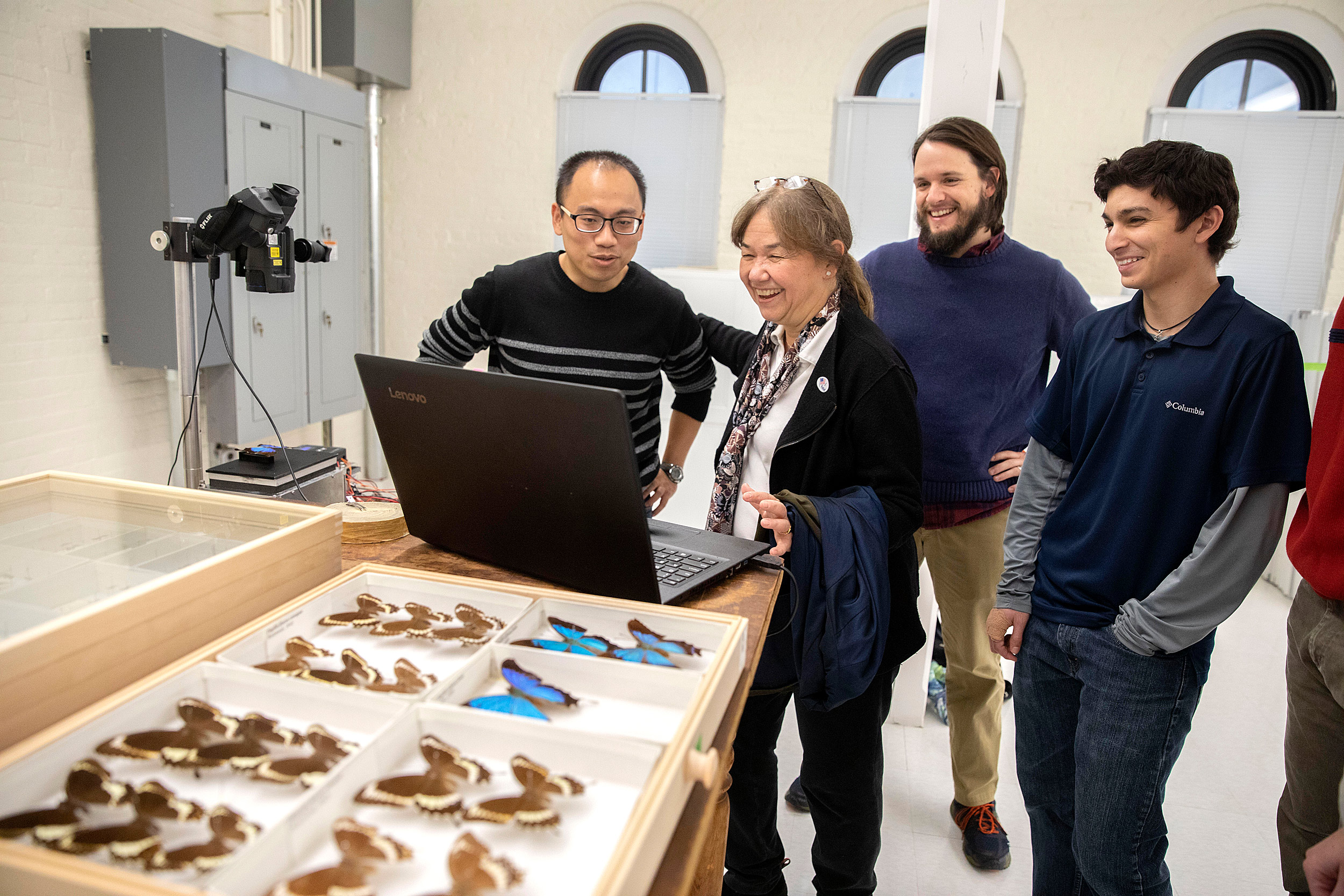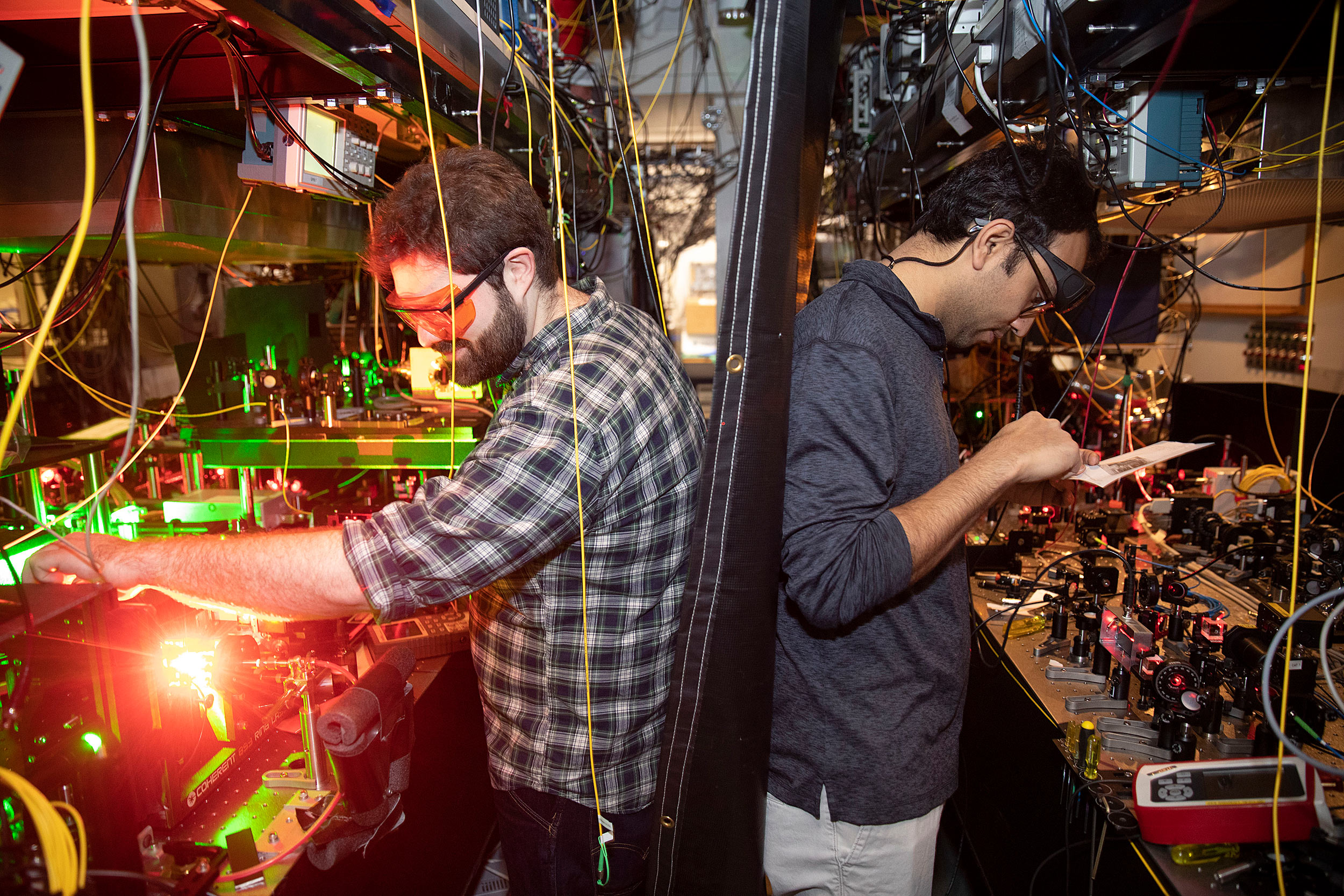
Louis Baum (left) and Debayan Mitra prepare to use lasers to cool polyatomic molecules in Physics Professor John Doyle’s lab. The buffer-gas cooling method pioneered in the lab is being explored for applications as diverse as disease detection and analysis of flavor profiles.
Kris Snibbe/Harvard Staff Photographer
In the molecular and cellular biology lab of Nicholas Bellono last month, students studied the sting of an upside-down jellyfish. Nearby, in the lab of Physics Professor Mikhail Lukin, others used laser lights to chill atoms to temperatures colder than those found in space.
To highlight the range of research being done in Harvard’s science labs, we recently visited students doing hands-on work in fields from quantum science to biology. What follows is just a snapshot.

Aboozar Monavarfeshani, a research fellow in neurology, examines regeneration of the neural circuit that connects the retina to the brain in the lab of Biology Professor Joshua Sanes.
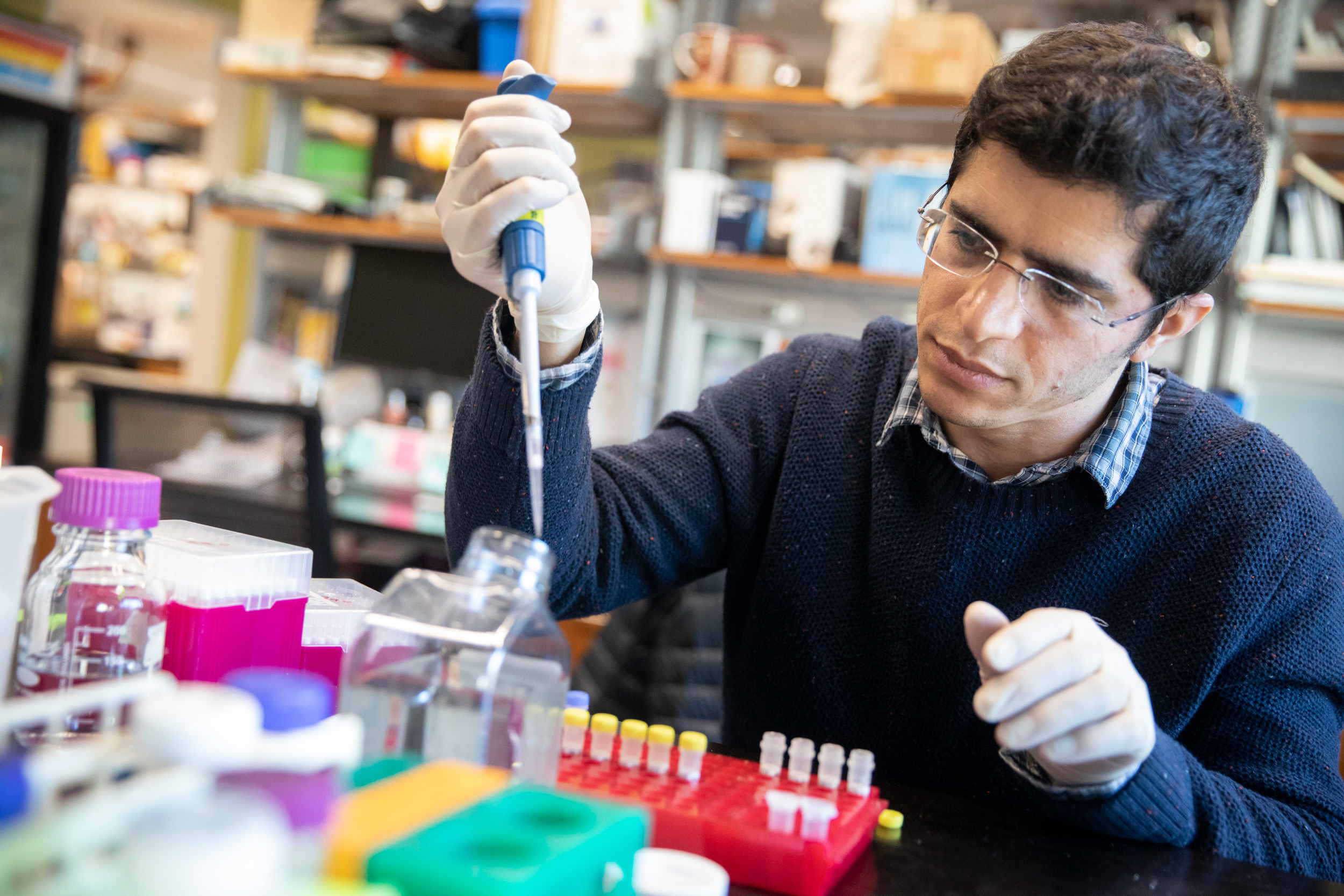


In the Bellono lab, Keiko Weir studies upside-down jellyfish and prepares the tentacles of a starlet sea anemone in her microscope.
Jellyfish pulsate in the Bellono Lab.
Video by Kai-Jae Wang/Harvard Staff

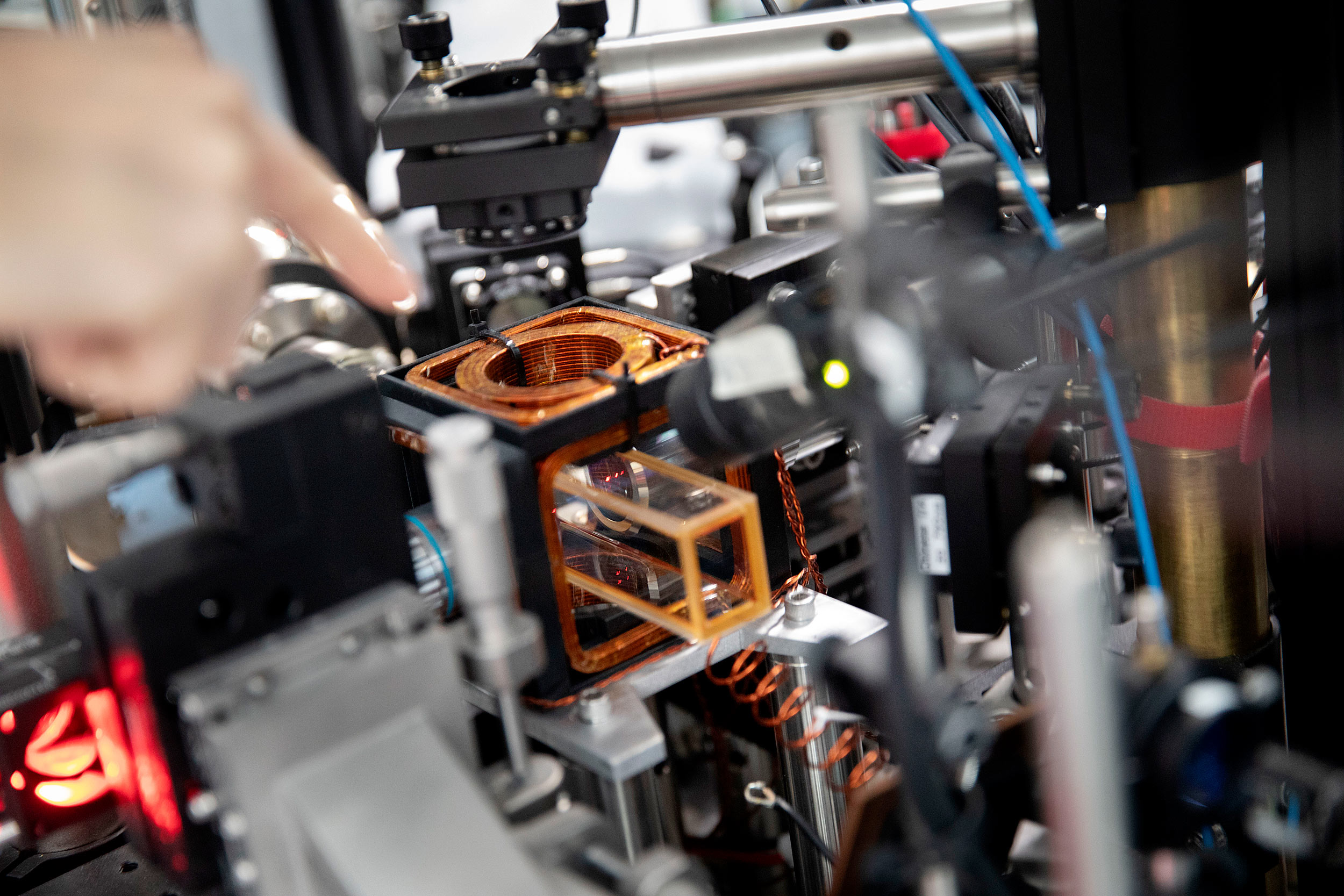
Lanell Williams conducts experiments with Chemical Engineering and Physics Professor Vinothan Manoharan; laser light traps and cools atoms in the Lukin Lab.

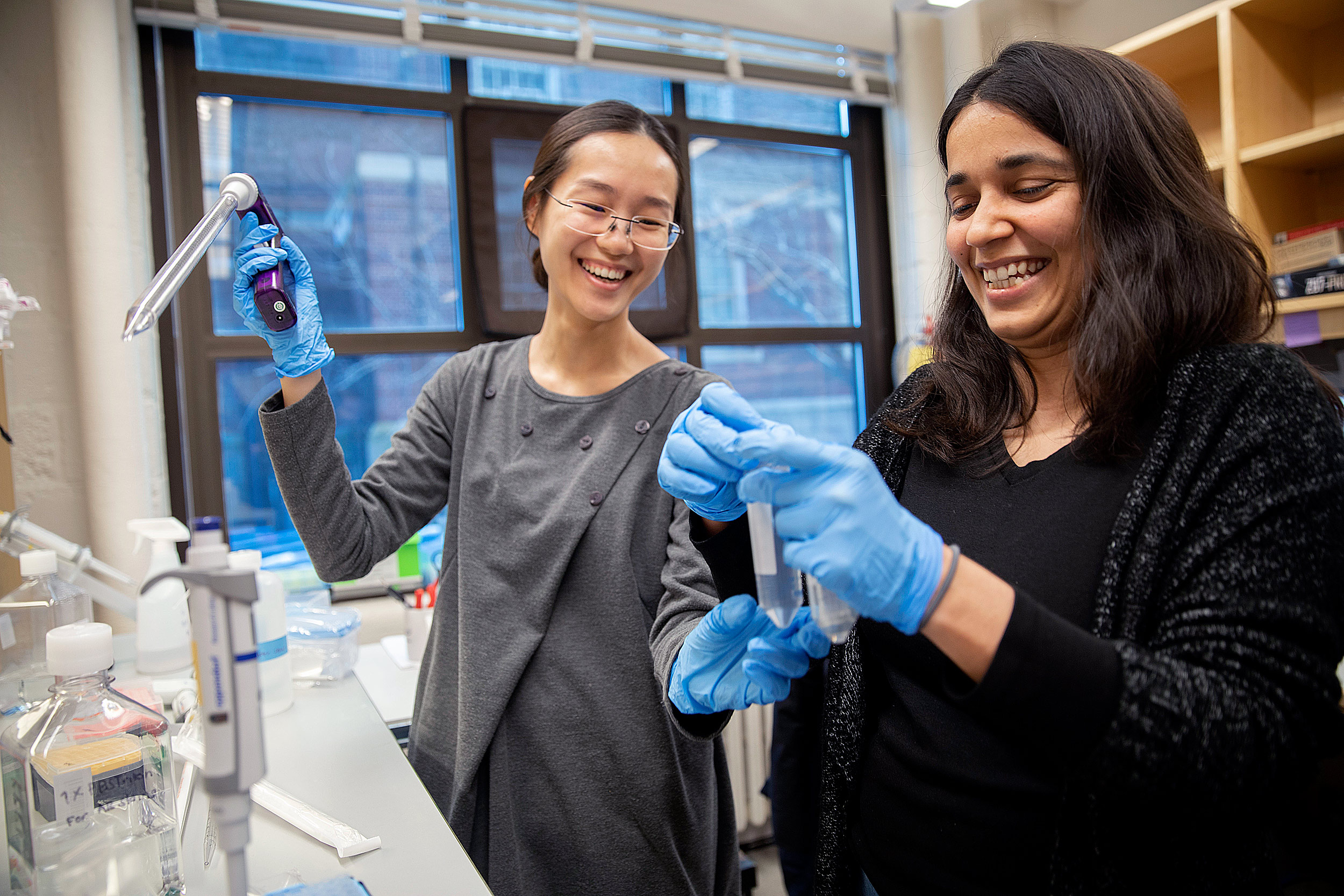
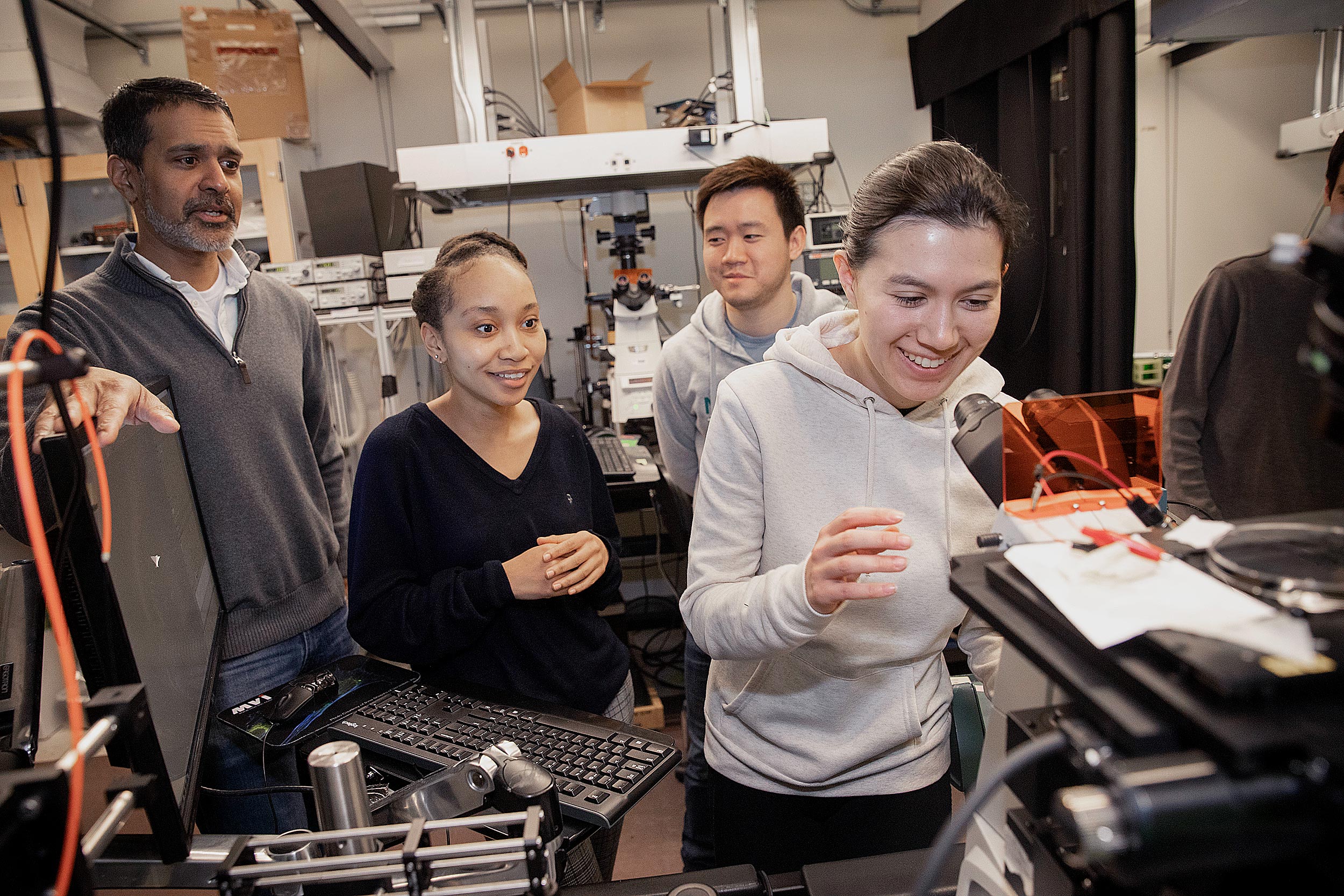
Yiqun Wang (left) and Shristi Pandey do experiments on zebrafish in Professor Alex Schier’s lab to help them better understand vertebrate brain development. Professor Vinothan Manoharan (from left), and students Lanell Williams, Timothy Chiang, and Amelia Paine explore how complex systems such as interacting nanoparticles or proteins spontaneously order themselves.
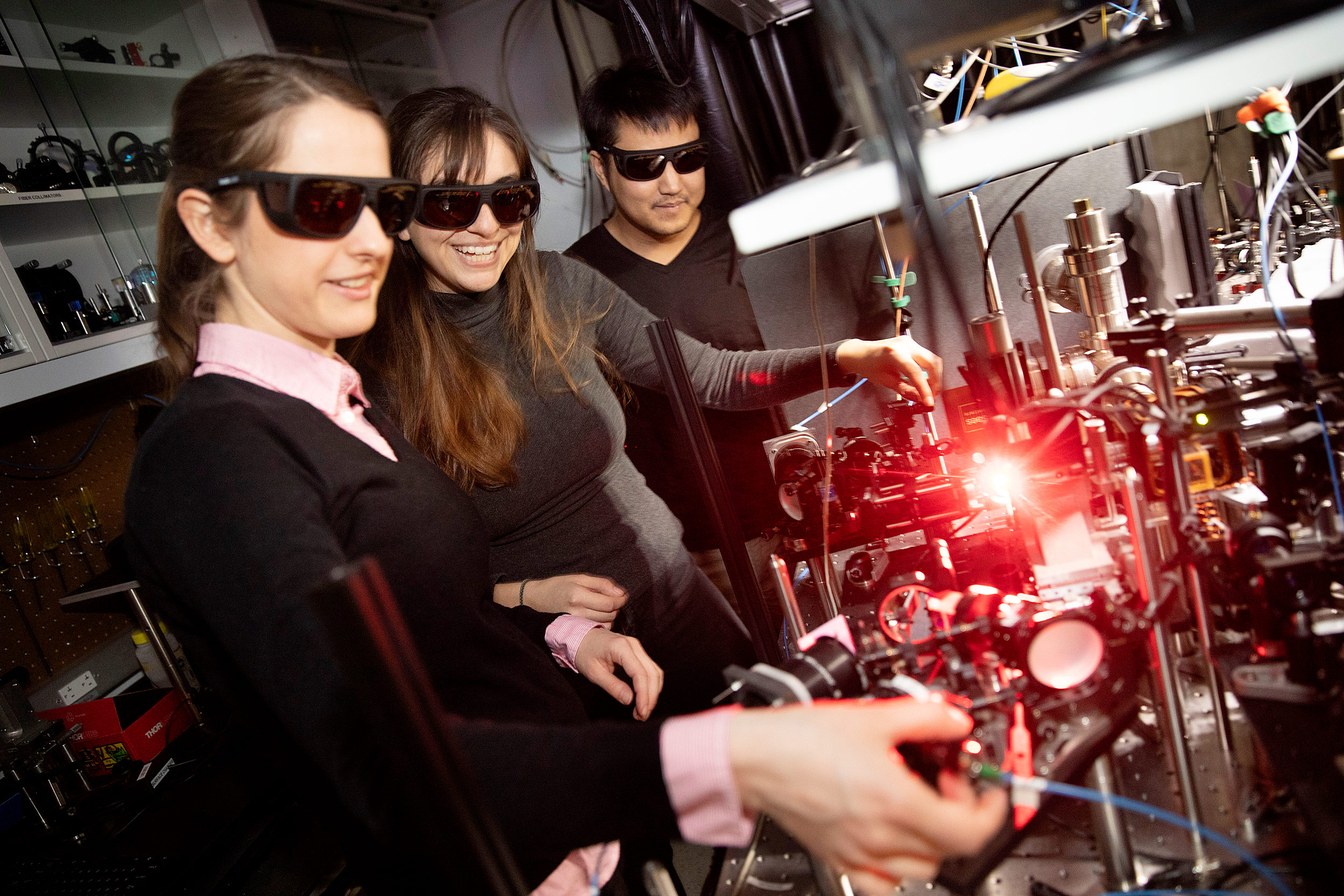


Yiqun Wang watches zebrafish embryos under a microscope in the Schier lab; Naomi Pierce, Professor of Biology and Curator of Lepidoptera, digitizes butterfly wings in the Harvard Museum of Comparative Zoology (MCZ).
Photographer Cheng-Chai Tsai (from left), Naomi Pierce, James Crall, and Christian Perez ’18 digitize butterfly wings at the MCZ.
